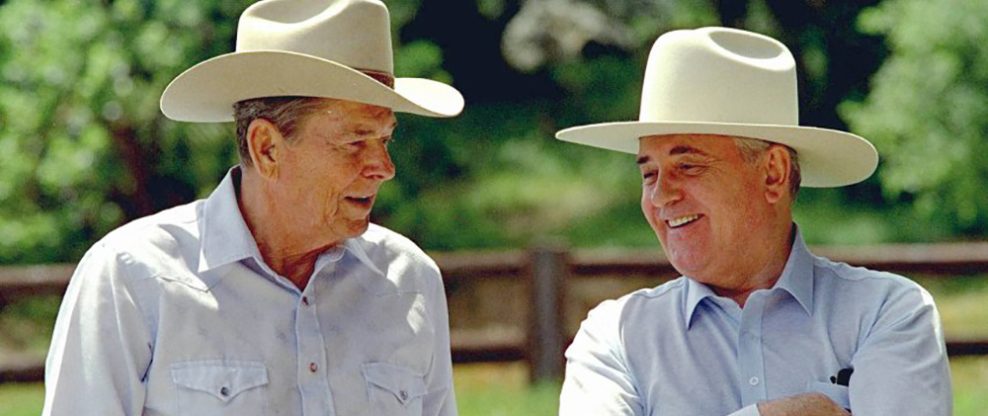MOSCOW (CelebrityAccess) — Mikhail Sergeyevich Gorbachev, the eighth Secretary General of the Soviet Union who presided over the dissolution of the nation’s communist government at the end of the Cold War, has died. He was 91.
His death was announced on Tuesday by Russia’s state news organization TASS and Central Clinical Hospital in Moscow.
“Tonight, after a serious and prolonged illness, Mikhail Sergeyevich Gorbachev has died,” the hospital said, according to TASS.
Born in 1931 in Stalinist Russia, Gorbachev graduated from Moscow State University where he received a law degree in 1955 and received further education from Stavropol Agricultural Institute.
He joined the Soviet Communist Party in 1952 and as a member of the Komsomol youth organization, supported Nikita Khrushchev de-Stalinization reforms after Stalin’s death in 1953.
He was appointed the First Party Secretary of the Stavropol Regional Committee in 1970, and oversaw the early phases of the construction of the Great Stavropol Canal, an 480 mile irrigation channel linking the Kuban and Manych Rivers.
Gorbachev was elected secretary general of the Communist Party’s Central Committee in 1985, following the death of his predecessor Konstantin Chernenko amid a period of internal stagnation and international challenge for the Soviet Union.
During his tenure, he supported glasnost, a set of policies supporting social and cultural liberalization, and perestroika, a similar set of policies intended to bring about political and economic reforms. In six years with these key reforms, Gorbachev helped to bring down the Iron Curtain and effectively ended Cold War statement Soviet Union and the United States that for four decades defined international politics.
In 1989, Gorbachev stood by as Communist governments in Soviet satellite states in Eastern Europe self-destructed and undertook their own paths to economic liberalization.
After the dissolution of the Soviet Union, he was elected as the first and only President of the Soviet Union and survived a coup d’état in August 1991 when hardline elements of the former Communist government attempted to once again seize power.
Ultimately, he was forced from office in 1991 by Communist reactionaries who were shocked by the rapid pace of change, and liberals who wanted to still broader economic and social reforms.
Following his departure from office, Gorbachev was an advocate for social democracy in Russia and in 2000, helped to found the Russian United Social Democratic Party. While initially a supporter of Vladimir Putin, he became increasingly critical of the seemingly rigged political system in Russia.
In 2009, Gorbachev released Songs for Raisa, an album of Russian romantic ballads, sung by him with accompaniment by musician Andrei Makarevich, to raise money for a charity devoted to his late wife.





























